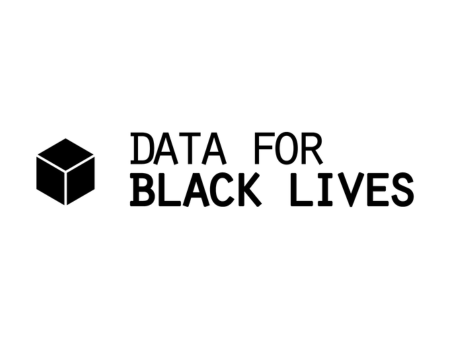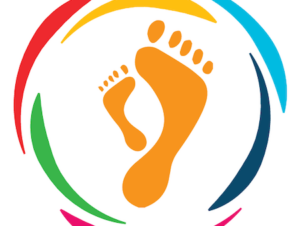Data for Black Lives is a movement of activists, organizers, and mathematicians committed to the mission of using data science to create concrete and measurable change in the lives of Black people.
Yeshi Milner of Data for Black Lives spoke with Ashley Hopkinson on February 14, 2024. Click here to read the full conversation with insights highlighted.
Ashley Hopkinson: Can you start by introducing yourself?
Yeshimabeit Milner: My name is Yeshimabeit “Yeshi” Milner, and I am the Founder/CEO of Data for Black Lives. We are a movement of scientists and activists working to make data a tool for social change instead of a weapon of political oppression — with a particular focus on the lives of Black people.
Ashley Hopkinson: In your estimation, what was the problem that Data For Black Lives was founded on solving, and how do you see yourself working toward addressing that problem?
Yeshimabeit Milner: I started Data for Black Lives in 2017 because I saw that we were entering an era where advanced automated decision-making systems like artificial intelligence (AI) would have an increasingly overstated role in our lives. We were seeing more use and adoption of these technologies –like facial recognition — by government agencies. The use of them is in literally every aspect of our lives.
I also saw that there was an absence of connection and intentional inclusion of directly impacted people in the development of those technologies. There was a silo and segregation between the scientific community and the activists, organizers, and community-centered folks. My goal with Data for Black Lives was to bring those communities together and build a movement that would be about reclaiming data and the potential of technology.
I started the organization at a conference at the MIT Media Lab in 2017 where we convened 400 people. However, much of this work comes out of my experiences as a high school student and as an organizer. My very first time collecting data was after some young people with whom I grew up organized a peaceful protest in response to a vice principal putting a student in a headlock. This was 2007/2008. Instead of their protest being recognized as students taking action and responding in a nonviolent way, the school district sent in SWAT teams and police cars. It was on national news as “Students Riot at Miami Edison Sr. High.”
This school was predominantly Black and predominantly immigrant, and we knew that response would not have happened in any other school. It made me realize that — in addition to protests and nonviolent action — we need to find other channels to make our voices heard. Data was that way.
I joined a small organization in Miami and took the helm of their youth organizing work. We surveyed over 600 young people in Miami-Dade County public schools about their experiences with suspensions, arrests, and police brutality in schools; then, we turned those findings into a comic book. Because that data and the way that we disseminated it was very new and very innovative, it was used by organizations, young people, youth organizers, teachers, and parents all over the country in different cities, who were also facing what we now know as the school-to-prison pipeline.
After college, I returned to Miami and led a campaign around Black infant mortality. Mothers and families in the community were discussing their experiences at Jackson Memorial Hospital, which is the largest public hospital in Miami. They said that they would go in to give birth and many times leave with medical conditions or face disproportionate experiences of Black infant mortality. At that time in Miami, Black babies were three times more likely to die before their first birthday than White babies. There was very little research on what the issues were, but speaking to people in the community, we knew that it was a confluence of factors and policies that just did not contribute to a safe birthing environment. After trying to rally and work with the hospital to push back on their policies, we decided that doing a survey and writing a report would be the best way.
I surveyed mothers in the community, and we wrote a report that laid out very concrete recommendations around what the hospital could do to change these policies, including adopting the Baby-Friendly Hospital Initiative, which was becoming popular at that time. After years of working on this campaign, which had started before I had joined it, we were finally able to get the attention of the hospital leadership and have them change the policies. We couldn’t bring 300 Black and Latinx moms and families into the meeting with us, but they couldn’t deny the data that we collected.
Data for Black Lives is a response to the real threats that artificial intelligence and other data-driven technologies have introduced, but it is also a response to the need to reclaim and reverse engineer. We’re trying to put the power of data into the hands of people who — because of their proximity to these social problems — could use it to change the social fabric of our society, address longstanding problems, and create a better world for all of us while fulfilling the true promise of technology.
Ashley Hopkinson: Who would you say is the audience, or the beneficiary, of the work that you’re doing?
Yeshimabeit Milner: We’re split down the middle between people who work in artificial intelligence — software engineers, data scientists, researchers, and academics — and people who represent the community — are activists, organizers, parent leaders, and students. Building this network that’s interdisciplinary, multiracial, and multi-generational has been really important in making sure that we’re empowering people so they can go off and empower their communities and change the material conditions of where they live.
It’s about empowering scientists, activists, and everybody in between and creating a new generation of data warriors who have the skills, vision, empathy, and understanding to tackle the problems of the future. We want people who can see and understand that there’s another way to do data science and approach technology. This is the methodology that we hope to share with the world.
Ashley Hopkinson: What would you say makes the organization distinctive in the space of people who are talking about the challenges of power and control around data, data capitalism, and these other issues?
Yeshimabeit Milner: For one, our focus is on movement building as well as taking an interdisciplinary approach to the work. We engage in research as well as policy advocacy and organizing in our work. Naming the organization Data for Black Lives was very intentional because it gives us specificity in a space that can be very broad. I like to use the late and amazing civil rights lawyer Lani Guinier’s metaphor that Black people are canaries in the coal mine. During mining operations, foremen would send in canaries to test out the toxic conditions in the mine to ensure that once the miners went in, they would not die. Instead of blaming the canaries for these toxic conditions, the canaries became a really useful part of the operation and the goal.
In terms of the experiences of Black people, because of our proximity and direct experience, we’ve been looking at the ways in which you can run a throughline between chattel slavery and the trafficking of 12.5 billion people to the contemporary banking, insurance, and data systems of today. It’s extremely important for an organization like Data for Black Lives to exist. I would say that’s what makes our work distinctive.
Ashley Hopkinson: Do you have a story or an example that illustrates the impact of your work?
Yeshimabeit Milner: I can think of a few stories, but one that continues to be the blueprint and continues to inspire me is the work that we did supporting an organization and individuals in Minnesota.
Folks were reaching out to me because in St. Paul and the Twin Cities, their mayor, the police chief, the foster care agency, and some other agencies announced a joint powers agreement to share data across agencies, which would be used for the development of risk scores. Those risk scores would then be used by social workers and school districts and other organizations to decide the future of young people, families, and entire communities in St. Paul and the Twin Cities.
In a city where Black students were roughly 30% of the population but represented 80% of those being suspended, and where Native American youth were overrepresented in both foster care and the prison system, community leaders were concerned about what that would mean. Many of them didn’t even know what a risk ratio or an algorithm was.
It was a real opportunity for Data for Black Lives to come in and support. That meant going to St. Paul and organizing a forum and a mini-conference where we taught people about automated decision-making systems: hosting a Data Science 101, and an Algorithms and AI 101. It also meant being on the ground as they developed a strategy to counter this plan.
It was an incredible experience to support these individuals as they transformed from an empowered group of teachers, parents, students, and community leaders into a coalition working to stop the cradle-to-prison algorithm. After a series of different strategies and tactics on the research policy, advocacy, and organizing side, they were able to push the mayor’s office to totally dismantle that plan. Most importantly, they pushed for a plan that would address the longstanding demands that people in the community had been making.
They understood that just because a technology is new doesn’t mean that it’s beneficial. They pushed back against that narrative and instead built social support for funding social programs, and making sure that teachers and social workers had what they needed. I love talking about that story because it’s a model of how the community can come together and how an organization like Data for Black Lives can provide support on many different fronts and help build for the long term.
After that campaign victory, we were able to be a major support throughout George Floyd’s public execution and the entire 2020 uprisings, support that we continue to this day. We were not only able to empower individuals but an entire coalition that had a real direct impact on a community and continues to do so.
Ashley Hopkinson: That’s a great story. When you mentioned providing support on many different fronts, I was thinking about the broad definition of support because it sounds like you were not just empowering people, you were educating people and you were arming people with tools. Can you share more about what that support looked like?
Yeshimabeit Milner: Part of that support included training and financial assistance. We have a 501(c)(3), and I’ve been very intentional while building Data for Black Lives to position my work as social entrepreneurship and to build an institution. Having that financial governance structure has been essential in being able to provide financial support and being able to deploy other resources in terms of reporters, in the form of fiscal sponsorships, even insurance. It’s also essential in turning around research rapidly and supporting with strategy and development. It’s a full suite of technical assistance that we provide people. I think that’s what the moment requires.
For me, building Data for Black Lives hasn’t been about just having a conference or having a movement, but about building the foundation for an institution that can be around for the long haul. We are challenging and battling the civil rights issues of the 21st century, and part of my role is being able to work in the present, but also being able to think 10 or 20 years ahead of time. In 2017, we were anticipating the AI explosion of now. That’s when technologies like transformers technology — which is the main technology behind ChatGPT — were first being written about in obscure journals. As these technologies emerge, making sure that policy change is also happening exponentially, and that it’s the kind of policy change that comes from the ground up, is crucial.
Ashley Hopkinson: How do you measure success for Data for Black Lives? What stands out to you as evidence that you’re making progress toward these goals?
Yeshimabeit Milner: One concrete way is measuring it through actual policy change. Over the past years, we’ve sponsored and supported over twenty local and federal policies that seek to chip away at the structures that put the power of data into the hands of few, as we say.
Sometimes it’s seeing this policy be dismantled and this coalition be empowered, or for example, recently seeing the impact of our work through the White House AI executive order, or simply being invited into these spaces.
We’ve been an organization that — through my speaking and my testifying in different political venues and platforms — consistently pushes back against the role that Big Tech plays, pushes the need for AI guardrails as well as the need for more understanding amongst elected officials. We’ve done so much advocacy behind the scenes, and to see our work being reflected in federal legislation, which of course isn’t perfect, is definitely a measure of progress because that legislation would not be where it’s at in terms of a radical stance if it weren’t for the existence of our organization.
In addition to making sure we see federal and local policy change, we’re also focused on reaching as many people as possible. Because movement building and organizing is our focus, we spend a lot of resources and time making sure that we’re convening people, both online and in-person. Looking at the numbers of how many people we are able to convene, how many people we’re able to reach directly, or how many people are engaging with our work online and our research, is important.
The biggest metric, for me, is people’s stories of impact. It has been incredible to meet people who — because of Data for Black Lives and the space that we’ve created with our conferences, workshops, trainings, and research — have given themselves permission to be in this space, to do data science, to be a software engineer, to be data literate, and to be a data advocate.
Seeing people come through our organization, whether it’s our hubs program or other programs, and take on positions of leadership — be it at the White House, or in important local government or corporate positions — and knowing that they’re going in because of the space that we’ve created and that they’re bringing the ethos and spirit of our approach to reclaiming data–as protest, as accountability and as collective action–that’s a huge metric of success.
Ashley Hopkinson: What would you say is something that you’ve learned that someone else could benefit from? Do you have a teachable lesson that you could share?
Yeshimabeit Milner: Be nimble and flexible. No one could have predicted the pandemic happening. I remember we launched our hubs program right before the lockdown. We went from planning a convening at the Highlander Center — where all of our hubs volunteers and leaders would come together, meet each other, strategize by city and by region in person, and most importantly, break bread and get to know each other as people — to shifting the plan and doing it virtually. We realized that not only are we creating space to support people in their activism and research, and in using data to address issues in their community, but we also have to create space for healing. We have to create space for recognizing that all of us are facing something that has been unprecedented.
That work is just as important as some of the very urgent rapid response work that we had to do during the pandemic because we were one of the few data organizations that particularly focused on Black people. That’s part of why I started our newest program pillar — Decompress. I wanted to make sure that we had space for myself, people on my team, and all of us, to decompress, to deal with burnout, to have a space to unplug from technology and from the news, and to reconnect with and lean on music, in particular electronic music.
In the Black experience, when we don’t have access to insurance to get therapists, or we haven’t had social support systems, we’ve always had music. Electronic music is one of the best examples of how Black communities and Black people have been able to reclaim technology and use it to build entire cultural and social movements, whether it’s reggae and dub, hip hop, or techno.
That’s really why I started that program. If we’re in this highly technological era, we need to prioritize spaces that help us become more human and reconnect with each other. At the root of it all is making sure that we have a space for people to take care of their mental health, to connect, and to use music as a way to come together. This is especially important in this highly technological world where data is being weaponized, where newsfeed algorithms are not prioritizing providing people information in times of war and genocide, but are taking advantage of this as a lucrative opportunity to sell ad spots.
We launched that program at a temporary headquarters space in Miami, Florida last year because we plan on having our conference there in November. At that time, Miami wasn’t yet a place where it had become essentially illegal to practice, study, and teach Black history. We saw the importance of doing that kind of work and creating Decompress events, which were panels, music, free food, and just space for people to just relax, chill out, and attend talks and workshops.. The pandemic was a rapid response moment, and we were responding to a lot. We were dealing with the ongoing COVID-19 crisis as well as the worldwide uprisings and being a political home for people at a time when they really needed it. Throughout that, we wanted to make sure that we also had spaces to decompress.
Ashley Hopkinson: Media can learn a lot from that about counterbalancing. I love the idea of a decompress panel because you’re created to push back against a system, and, as an organization that’s movement-building, that’s another way to push back. We won’t let it take over every aspect of our being.
Yeshimabeit Milner: Rest is resistance. The nature of our work requires us to be creative, to be visionary, to connect the dots, and we have to be in a place of rest to be able to do that. It’s a marathon, not a sprint.
Decompress is also a technical term. You have to decompress a file in order to be able to use it, and that’s really where it comes from. As human beings, we need to decompress, we need to log off sometimes, and we need to reset and have a systems update so that we can continue to address the problems, and also the opportunities, of the future.
Ashley Hopkinson: You’ve had great success with convenings, with educating people about your work, and with Decompress. I’m wondering if there’s something that you’ve tried that did not work out as well. Is there something that either didn’t work or just didn’t meet your expectations in some way? What was your lesson or your takeaway from that experience?
Yeshimabeit Milner: Definitely. Going back to the example of the Twin Cities, that was the first iteration of the hubs program. Essentially, it worked in that we were able to pass policies, empower people into data science roles and positions, do a lot of leadership development and training, and put out amazing research.
But one thing I realized was that there was a need for more leadership development. Part of the reason why we needed to decompress was because people were coming into meetings and into spaces with a lot of deep issues and grief and addiction and self-harm. Instead of saying, “In order to continue with our agenda, we’re going to address that another time, or we’re not going to address it at all,” we were recognizing it. We did not lean into, “Okay, let’s see what’s going on with this person, but none of our organizers or leaders are actually clinically trained to even deal with this.”
The big lesson was that leadership development and working with volunteers requires deeper, longer engagement. It was very ambitious and amazing to bring on all these people all at once, but that’s part of the reason why we’re now relaunching the hubs with a movement scientist fellowship, and taking the time to bring folks into the organization and do that one-on-one support, coaching, and training. Then, we empower them to go off and lead a hub in their communities.
One thing that just did not work was our attempt to develop a policy working group around data trust. It was an international effort to build a structure or structures where people’s data could be held and protected in a container that was run and governed by an elected body, or an elected board, that had a fiduciary responsibility to make sure that the data was not sold or exploited. We were one of the only organizations in the US, and one of the only Black organizations, who were pushing for this. Part of the reason why we couldn’t convene our policy working group was because of the pandemic and because of space. But we also saw how conversations around data trust, both nationally and internationally, went to the wayside.
The role of data-driven technologies like AI will continue to have a role and maybe an out-sized impact on our lives. In terms of the spaces that are concerned with pushing back and advocacy, a lot of those spaces are also funded by industry, and they wade in and they wade out or they disappear. We will always be concerned with issues around data governance, but I hope that there’s another big push around data trust, and it becomes trendy again. One thing that COVID-19 revealed was the need for data trust to ensure that people’s health data would be protected and that it would be used not for commercial or financial reasons, but for health research and health equity.
We’re going to continue to research building out a concept for a genetics data trust and try to respond to the problem of Black people having been overwhelmingly targeted by DNA testing companies. We’ve seen a lot of DNA from that wave of testing being sold to pharmaceutical companies and even making its way to Chinese companies. How much of that genetics data is being used to address diabetes, high blood pressure, lupus, sickle cell anemia, or longstanding health issues that have plagued the Black community because of social determinants of health and structural racism? How do we make sure that if people are giving their data over in exchange for information about their ancestry, they can also check a box to know that it’s going to be used for good, or even be made aware that their data is being sold? We’re not giving up on this idea.
However, pushing forward a data trust right now is not going to get attention if it’s not trendy, and we do have to respond to what people are talking about. That’s part of why we do a lot of work to push forward demands that go beyond what’s new in the data governance or data ethics space. We still need structures that protect people’s data, that ensure people can opt-in and give consent, and that make large data sets like genetics data sets beneficial to Black people. Maybe the data trust structure isn’t the way to go, but we’re not giving up on the real need and the real problem.
That’s been a challenge in doing this work. We have to respond to what people care about versus what’s actually needed. But we use whatever opportunity we can to say, “Hey, this is the newest demand, or this is the latest thing. How do we make sure that we’re uplifting demands that address the real longstanding problems that Black folks have been facing?”
Ashley Hopkinson: Outside of making sure your organization is sustainable and well-funded, what else would you say is a particular challenge in your field?
Yeshimabeit Milner: While there’s a lot of money in tech, I feel like a lot of the different organizations who are in this space often have to compete for resources which stops collaboration. At Data for Black Lives, my goal has been for us to build our organization, but also to invest heavily in ecosystem building because we cannot address any of these issues at the scale or the systems level that we need to address them at without having all of our organizations thrive. That’s one challenge.
Education and challenging existing narratives around the role that data plays in our society is a challenge. We have to confront the fact that there’s been an overall attack on math and science education, so when we’re talking about issues related to the weaponization of data, we not only have to avoid using words that are jargony, but avoid even using the words algorithm or AI. We need to describe it in a way that people can understand, whether they’re the elderly lady who lives next door to me or somebody in Congress. A lot of these technologies are not only intentionally obfuscated and confusing, because that’s how power is secured and hoarded, but a lot of people just don’t have the language for it because of a lack of math and STEM education.
I also think it’s hard to push back against narratives that have painted a very particular view of Black people. When I got involved in this work as a student, and we were coming up against these police and SWAT teams, and having to go to the school board and testify about our experiences only to be kicked out and shunned by our elected leadership, we weren’t just confronting individuals. We were confronting narratives about young Black people, narratives about who we were. We were confronting the crack baby myth, which was a study that was based on 23 participants.
Yes, 23 participants became the basis for a study that painted an entire generation and generations to come as being crack babies and a threat to society, the super predator myth. These were all sociological, data-driven myths that political leadership ran amok with in order to enforce policies like the Clinton Crime Bill, like ending welfare subsidies and right to work laws. We knew that we were confronting all of those things, and we continue to confront them, for instance when I’m talking and doing presentations about our No More Data Weapons Campaign.
We are about to put out some very interesting research through a FOIA [Freedom of Information Act] records request with the Metropolitan Police Department that looks into how social media monitoring works. The police are all over social media, and they’re not monitoring people who are threats. We have evidence of them monitoring tweets from a woman who had just given birth and tracking all of her whereabouts. She was a leader at a nonprofit, not even a very out-there activist. She was a mom.
We saw that level of tracking across police departments, across the Department of Homeland Security and DOJ [Department of Justice]. Some people feel like we need that. They believe predictive policing works and that this is what we need to do to address terrorism or to address people trying to start trouble or fight the police in our communities. We have to show that these technologies, data weapons, and social media monitoring practices are not working in terms of crime fighting, addressing violent crime, addressing terrorism, or even addressing incidents of teen carjacking in DC neighborhoods. They’re also in violation of people’s civil rights and First Amendment rights, and they are not the ways in which police should be doing policing.
That involves coming up against narratives around the role of law enforcement and the role of technology. Even at a time when we’re calling to defund and abolish the police, there’s a lot of education that needs to happen. Some people don’t have the education to ask, “If the police are going to be doing surveillance online, why is it that they’re over-surveilling people at George Floyd protests, but turning a blind eye to January 6th?” There’s a disparity here. It’s not fair and it’s not effective, but it is an opportunity for us to rethink what community policing and what community safety looks like. That’s a question that has nothing to do with technology. Technology is secondary to that.
Ashley Hopkinson: I can see the systems change in much of what you do because it’s a lot of long-game work. How, then, would you define the role Data for Black Lives is playing in systems change?
Yeshimabeit Milner: I definitely see it in different buckets. We see our work in research, policy, and organizing, and bringing together all three because that multi-pronged approach is really important in addressing the current development of technologies, as well as the historical roots and context in which they’re deployed. Our ultimate theory of change is that by changing the cast of characters involved in these technologies — from design to development to deployment — we are able to change the impact and again, ensure that the technologies are being used for good instead of being further weaponized.
A big part of our work is helping people understand how systems work. One of the methodologies that we pioneered very early on is systems thinking. For our second conference, we partnered with Google and their responsible AI team and connected them with a group of organizers and activists. Through a year-long process, they together learned and delved into systems thinking, which is an engineering concept and framework to get into the layers by which systems operate, pull them apart, and untangle and detangle them to reverse engineer them.
Throughout that year-long process, there was a series of workshops and research that culminated in a larger workshop at our conference. I think that kind of work is really important because again, a lot of times when we’re thinking about what’s at play and systems thinking, it’s a lot of different layers of policies, practices, written and unwritten rules. Building awareness around that is ultimately what needs to happen before we address these larger systems.
Ashley Hopkinson: What would you say is needed from other players and other organizations working in this space, dealing with data and technology? How might policymakers or other actors in the space help advance the work that you guys are trying to do? What do you think is needed in terms of support or presence?
Yeshimabeit Milner: Trust. We’re all together trying to build trustworthy and safe machine-learning and data-driven technology, but in order to instill trust in models, we need to instill trust in ourselves and in each other. We need trust amongst community sectors and nations and in our political system. Trust and transparency. We often talk about creating transparent technologies that are interpretable, meaning people can understand them, they’re interoperable, they can be changed or modified, and they are contestable. If a decision is made that is unfair, wrong, or harmful, it can be contested. But in order for us to have that in our technology, we have to have that amongst ourselves.
One of the things that I came across and knew would be a challenge, which has become a big part of our work, is challenging pre-existing narratives about who looks and sounds like an expert because in the space of technology, that continues to be a problem.It can be challenging to include the input, voices, and experiences of people who are directly impacted by these technologies. It can be hard to even open up the table and the research to technologists, data scientists, and researchers who may not fit the mold in terms of pigment, nationality, or formal education. There are lots of people who are self-taught technologists who have amazing input into how we can create more fair, accountable, transparent, and contestable data systems. But they’re not a part of the conversation because they don’t fit that mold.
Ashley Hopkinson: How do you anticipate the work of Data for Black Lives evolving over the next few years?
Yeshimabeit Milner: One thing I realized early on was that we would be in this for the long haul, and that institution building takes time and patience. Looking to 2030, I see Data for Black Lives continuing to be involved in concrete policy change in cities across the country in terms of addressing and dismantling the use of technologies and making sure that the needs and demands of the people being impacted by these technologies are implemented. I see us continuing to have an impact on a federal level in terms of shaping the US and therefore international agenda around AI and data systems. And I see us continuing to train people, not only creating a space for people who are in academia, PhD programs and grad schools, but expanding our work to the K-12 realm. A big part of our work this year was collaborating with Gen Z, especially through Decompress, and engaging more kindergarteners to 12th graders.
We’re launching a capital campaign to purchase a building that we can use as a permanent space to run programming, offer co-working spaces, host trainings, and just have a presence in the community. We are considering doing that in multiple communities as we build out more hubs programs, so that is definitely on the agenda.
I envision our impact being seen and our research continuing to be read in classrooms as we continue to publish more reports, author more books, and develop the canon around using data science and employing technology in a just and transparent way. Part of what we’re seeing right now is not just a political and cultural battle, but an ideological one. Will the technology of the future be used to optimize for profit, greed, war, and genocide, or for justice, fairness, equity, and inclusion? That’s where I see Data for Black Lives’ impact being most seen and felt. We’ll be an organization that’s full of leaders, that is represented in many different spaces, and that is continuing to grow our base and have our impact be seen in concrete ways.
Ashley Hopkinson: What inspires you to keep going in this work? I don’t think everyone sees data and social change as interconnected. What inspires you to keep staying in this field and doing this work?
Yeshimabeit Milner: Once you see it, you can’t unsee it. That is part of why we do this work. Once we show people, it’s like The Matrix. We give them the red pill, and they’re seeing data everywhere. I’m someone who’s regularly involved in meetings in Washington, DC around AI and financial systems, and one of the longstanding demands that we’ve had is to abolish FICO [Fair Isaac Corporation] credit scoring models. For most of the population, 90% of lending decisions are made using FICO. FICO’s biggest client is the US government, through Fannie Mae and Freddie Mac, and the FHA [Federal Housing Administration]. Yet research has shown the ways in which FICO disproportionately scores score Black people much lower than any other group, and I’m impacted by that.
Algorithms like FICO have a major role in people’s lives: impacting access to housing, impacting employment, impacting immigration. When you have a low credit score, everything you buy just costs more money, and it pushes people into cycles of poverty. There’s a total absence of ways for people to push back. Yes, we have the Fair Credit Reporting Act where you can appeal. Yes, we have the amazing Consumer Financial Protection Bureau complaints database where you can complain. But beyond that, there’s not much you can do if your credit score is low and you want to contest these decisions. As long as that’s the reality, then I’m going to continue to do this work because I’m impacted by it. Recent data showed that Black women under the age of 34 were given the highest interest rates out of any group across race, class, or gender.
Part of that is because of credit scores, but part of that is because inherent to these mortgage underwriting algorithms is a historical racial bias. According to the algorithm, I’m a problem, or I am not qualified. What does that mean for me personally? A lot. I also think about what that means for entire communities, and this entire generation, where perhaps not everybody wants to own a home, and home ownership isn’t the only way to wealth creation and closing the gap. But it is a way that has been historically denied to us. While it is right now illegal to deny people housing based on race, you can’t sue an algorithm. So as long as that’s the case, I’m going to continue to fight, and that’s my why.
Ashley Hopkinson: That’s a great place to end. Thank you.
Click here to read the full conversation with insights highlighted.
Ashley Hopkinson is an award-winning journalist, newsroom entrepreneur and leader dedicated to excellent storytelling and mission-driven media. She currently manages the Solutions Insights Lab, an initiative of the Solutions Journalism Network. She is based in New Orleans, Louisiana.
* This interview has been edited and condensed.
Read other insights from what’s working in social innovation.







